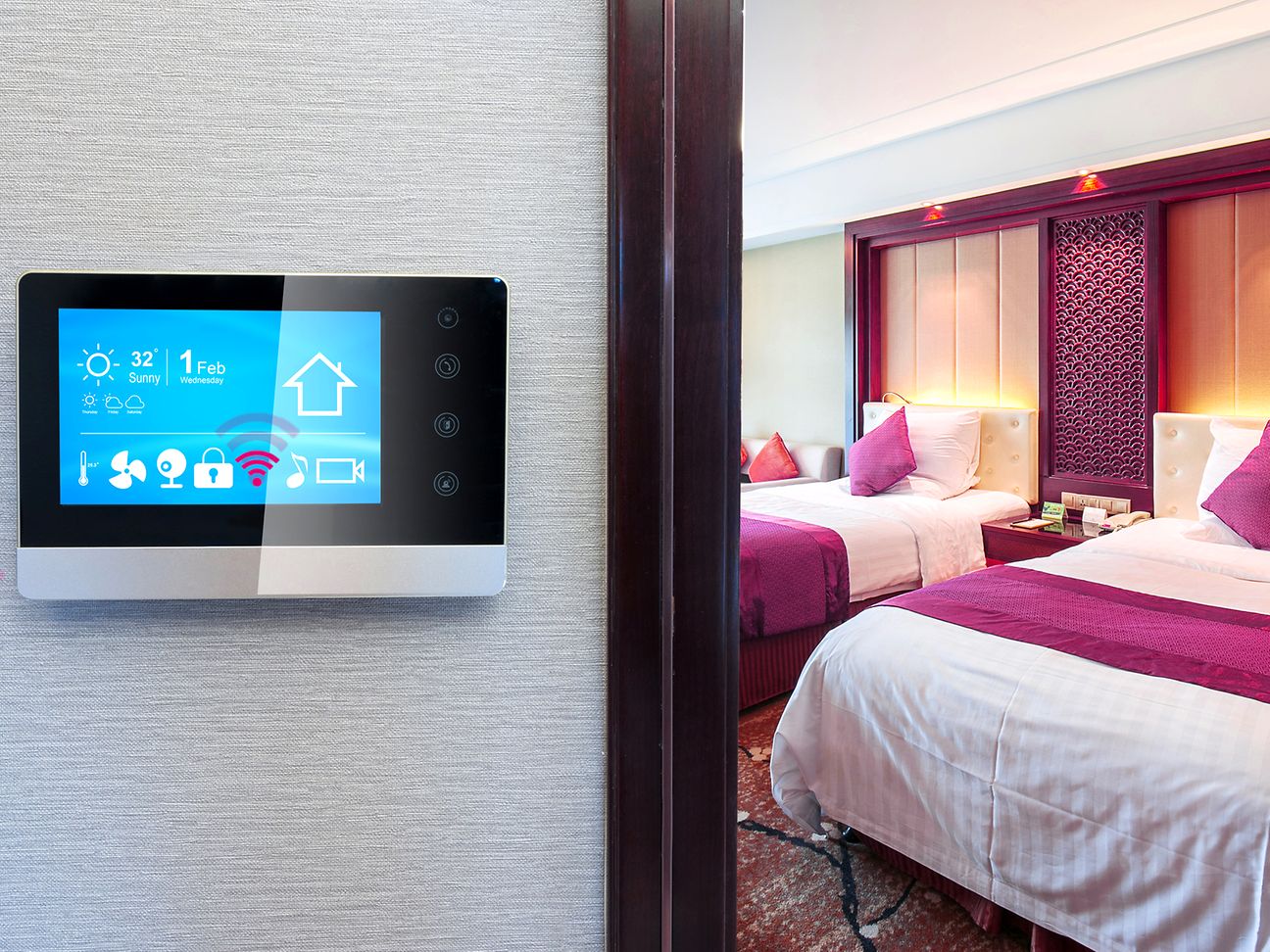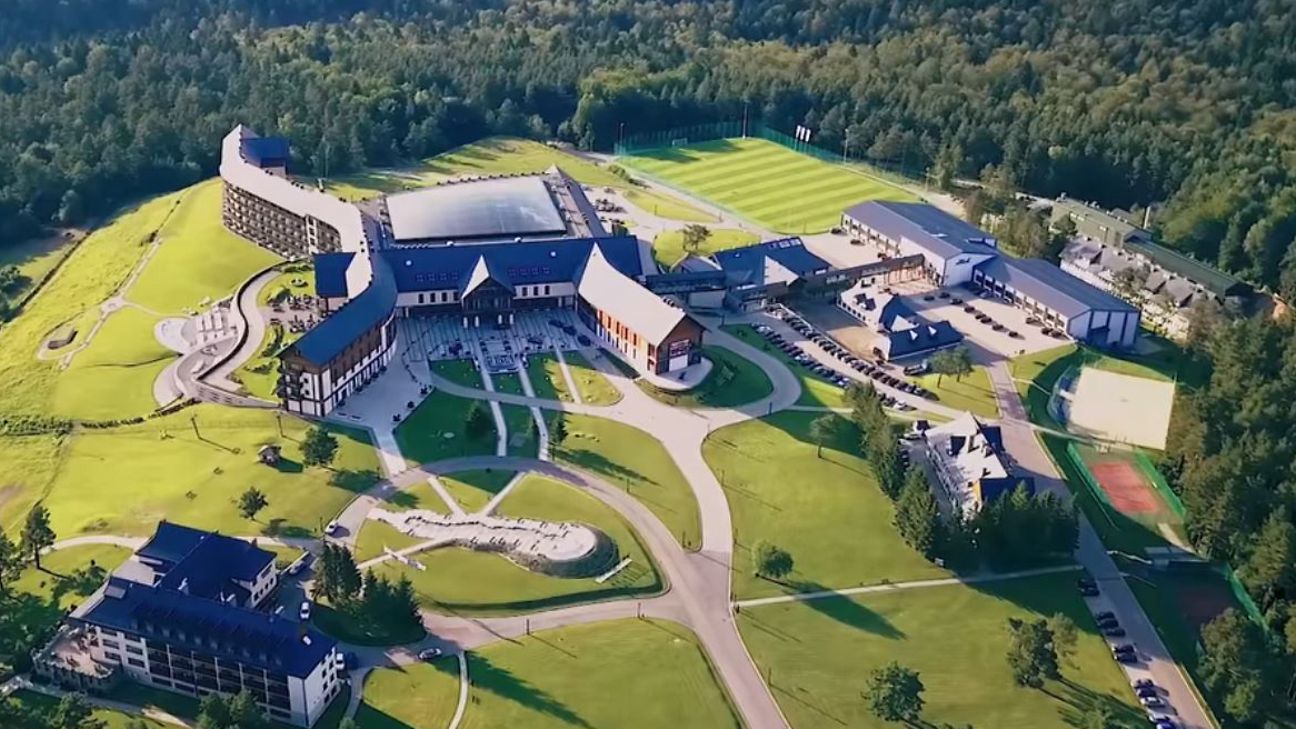

Check-in please: hotels go digital
How does digitization impact hotels? To answer this let’s look first at ourselves as customers.
Whether on business or on holidays, from the moment we book a hotel stay to check-out, we are always, more or less, connected, right? What does this mean for the hotel industry? Automated check in and check-out? Top-notch Wi-Fi offer? Well, that’s considered a minimum nowadays. A recent survey reveals that one in five people would prefer free Wi-Fi in the room over a complimentary breakfast the next morning. Meanwhile, the day is not far where robot butlers might cater to our needs!
Keeping pace with such trends to improve overall guests’ experience is vital for the hospitality industry. Meanwhile, this goes hand-in-hand with the need for high operational efficiency and sustainable growth. This is why hotels’ digital transformation was in focus at an event that we as Deutsche Telekom hosted recently in Krakow, Poland.
Shaping our next hotel-stay - and hotel-business alike
Our B2B experts, together with key hotel players from Poland, Greece, Croatia, Hungary and Romania, hub:raum, innovators and various experts, took at deep-dive into current challenges and trends. How to best match hotel needs with digital solutions and forward-thinking technology has been the key question. Getting the right mix is vital.
Let’s have a look at Mitsis Hotels in Greece for example: Greece’s largest own hotel chain with 17 locations across the country and around 350.000 guests per year. This number of guests means also a high number of paperwork that needs to be archived. Managing such an increasing volume of information is not easy. Has the right information been kept? Storage costs are hardly insignificant, so answering this question right can be decisive for future growth. Thanks to digitization and cooperation with OTE, they came up with the idea of a so-called Open Text Content Lifecycle Management. A way of work that allows to save all important documents and information digitally as well as finding files quickly, sharing, organizing and classifying documents securely. It makes the work easier and reduces costs, while it comes with a nice side-effect: it is environmentally friendly. So, it pays-in towards a good corporate responsibility profile for the hotel chain as well.
Another example of going digital can be viewed in this videoclip.
Arłamów Hotel is an extraordinary complex of leisure and conference facilities located in the Bieszczady Mountains, Poland. Access to high speed Internet is guaranteed by over 17 km of fibre optic cables laid by T-Mobile Poland in the Bieszczady Mountains. This way guests can enjoy fast and secure connectivity.
Valamar Hotels, a leading Croatian hospitality brand is another great business-case. The hotel chain, together with Hrvatski Telekom, improved Wi-Fi coverage heavily, both indoors and outdoors, adding to guests’ satisfaction as well as business potential.
Anton Petric, Vice President Enterprise Infrastructure B2B Europe and host of the event, comments: “I am glad to see some of the hotels being already aboard the digital journey. Together we can surely achieve more.”
Challenges and trends ahead
Meanwhile the hotel industry is facing big challenges. Hotels have more guests than ever. According to a recent study, travel and tourism now account for more than one-tenth of global GDP. We are really in a traveller-mode! This could hardly be an issue but the increasing costs that come along with the rising number of guests is.
If one thinks of this from a business perspective, hotels, like any other business, have two options: to increase the revenue by making offers more expensive or to decrease own costs -or both at best... A way to tackle this might be robots. For example, robots that serve food and drinks in the hotel restaurant or humanoid (or dinosaur-?) looking robots that welcome us like a receptionist would do. Ever heard about beacons? Connected to the Internet of Things (IoT), beacons offer the capability to send geolocation-based personalized recommendations and notifications. They can be compared to digital assistants on our smartphones. Beacons may take over service tasks, eg. asking for a room update when entering the room or a personal welcome in the restaurant.
No matter how amazingly advanced the hotel industry and how bright its future looks like, there is another important aspect to it: cyber security. Hotels are not immune from the danger of being hacked. Various media reports that pop-up with a simple Google-search are proof to that. Considering that hotels handle massive amount of personal data and credit card information, ensuring a high level of security in hotel business is paramount nowadays.
The path forward is clear: digital transformation in the hotel industry is here to stay and it means big business too. Something to keep in mind next time we check-in with a simple click or get our snack served by a friendly robot.


